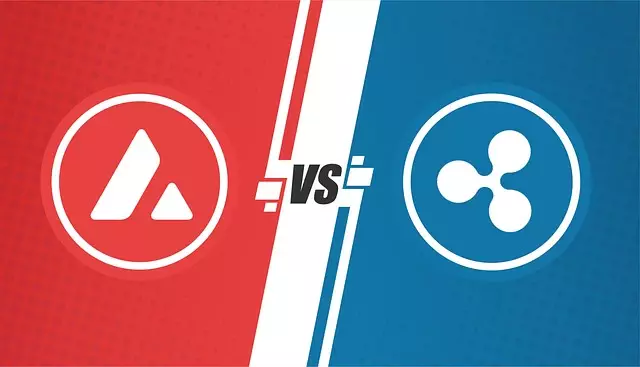Collision and comprehensive auto insurance serve distinct purposes: collision protects against accident-related damages, while comprehensive offers broader coverage for unforeseen events like theft, vandalism, and natural disasters. Premiums vary based on vehicle details and risk profile, with collision typically lower. Comprehensive is ideal for high-risk areas or valuable vehicles, ensuring peace of mind despite higher costs. Evaluate your needs, driving habits, and budget to choose the best fit between these two types of auto insurance.
When it comes to auto insurance, navigating between collision and comprehensive coverage can be a tricky decision. This guide aims to illuminate the nuances of these two essential policies. We’ll explore how collision insurance covers repair costs from accidents, but may exclude certain scenarios. Comprehensive insurance, on the other hand, safeguards your vehicle against a wider range of events, from theft to natural disasters. By comparing premiums, understanding coverage gaps, and considering personal needs, you can make an informed choice between these two crucial components of auto protection, ensuring you’re adequately covered for any eventuality.
Understanding Collision Insurance: Coverage and Costs

Collision insurance is a type of auto coverage that primarily pays for repairs to your vehicle in case of an accident, regardless of fault. When you choose collision coverage, you’re essentially protecting yourself from financial strain caused by repair costs. This includes damages to both your car’s structural components and its mechanical systems. The cost of collision insurance varies depending on several factors, including your vehicle’s make and model, your driving history, and the amount of coverage you select. Typically, collision policies have a deductible, which is the out-of-pocket expense you’ll pay before insurance kicks in. This can help keep premiums lower, but it means you’ll be responsible for the initial repair costs up to that point.
When comparing collision vs. comprehensive auto insurance, understanding these nuances is key. Collision coverage is specific to accidents and only applies when your car sustains physical damage. Comprehensive insurance, on the other hand, offers broader protection by covering various risks beyond collisions, such as theft, vandalism, natural disasters, and animal-related incidents. While comprehensive policies tend to be more expensive, they provide peace of mind knowing that a wider range of unexpected events won’t leave you with a hefty repair bill or financial burden.
Comprehensive Insurance: Protecting Your Vehicle Beyond the Basics

Comprehensive insurance goes beyond the basics covered by collision insurance, offering protection for your vehicle in a wide range of situations. While collision insurance primarily covers damage from accidents, comprehensive insurance includes additional benefits such as protection against theft, vandalism, and natural disasters like floods or hailstorms. This type of coverage is especially valuable if you drive frequently in areas prone to these risks.
When considering collision vs. comprehensive auto insurance, remember that comprehensive insurance provides a more thorough safety net. It not only shields your vehicle from common accidents but also from unpredictable events that could leave it damaged and totaled. Whether you’re navigating busy city streets or venturing through remote areas, having comprehensive coverage ensures peace of mind knowing your investment is safeguarded against a broader spectrum of potential hazards.
When is Collision Insurance Necessary?

Collision insurance becomes necessary when you’re faced with unexpected vehicle damage, typically as a result of a collision with another object or vehicle. Unlike comprehensive insurance that covers a wide range of perils, collision coverage is more specific. It’s essential for car owners who frequently drive on unpredictable or high-risk roads, where the chance of accidents is heightened. If you live in an area prone to natural disasters like floods, earthquakes, or severe storms, collision insurance might not be enough—comprehensive coverage would be a better fit as it protects against these unforeseen events.
When considering Collision vs. Comprehensive Auto Insurance, remember that collision insurance covers repairs or replacements due to accidents, while comprehensive insurance steps in for damage caused by non-collision events like theft, vandalism, falling objects, or weather conditions. Understanding the scope of each policy is crucial in making an informed decision tailored to your specific needs and risk factors.
Situations Where Comprehensive Insurance Offers Better Protection

While collision insurance is designed to cover repairs or replacements due to accidents involving another vehicle, comprehensive insurance takes a broader approach by protecting against a wider range of unforeseen events. Situations where comprehensive insurance offers better protection include damage from natural disasters like floods, fires, or severe weather conditions, as well as theft or vandalism outside of a collision. Unlike collision coverage which typically excludes these incidents, comprehensive insurance is tailored to provide peace of mind in such diverse scenarios.
Additionally, if your vehicle suffers significant depreciation over time or you drive less than 7,500 miles annually, comprehensive insurance might be a more suitable choice. It offers extra reassurance by covering losses that aren’t always accounted for in collision plans, ensuring you’re protected even when accidents aren’t the primary concern.
Comparing Premiums: Collision vs. Comprehensive

When deciding between collision and comprehensive auto insurance, one of the primary factors to consider is the cost, specifically the premiums. Collision insurance, as its name suggests, covers damage caused by collisions with other vehicles or objects. It typically includes repairs or replacements for your car’s physical damages. On the other hand, comprehensive insurance offers broader protection against various risks beyond collisions, including theft, vandalism, natural disasters, and more. While collision coverage tends to have lower premiums because it focuses on a specific type of damage, comprehensive insurance usually costs more due to its wider range of protections.
Comparing these two options, it’s essential to assess your risk profile and driving habits. If you drive cautiously, avoid high-risk areas, and own an older vehicle that may be less valuable, collision insurance might suffice. However, if you live in a region prone to natural disasters or have a newer, more expensive car, comprehensive insurance could provide better value by safeguarding against a broader spectrum of potential losses.
Additional Benefits and Considerations

When deciding between collision and comprehensive auto insurance, it’s important to consider additional benefits beyond just coverage for accidents. Comprehensive insurance, which covers damage from events like theft, vandalism, or natural disasters, offers a broader protection spectrum. It can be especially valuable if you own expensive items inside your vehicle or live in an area prone to specific risks.
While collision insurance primarily focuses on paying for repairs resulting from collisions with other vehicles or objects, it may not cover other incidents. However, collision coverage usually includes deductibles lower than comprehensive insurance, making it a more cost-effective option if you’re primarily concerned about accident-related damages. Weighing these factors will help you make an informed choice tailored to your specific needs and risk profile in the collision vs. comprehensive auto insurance debate.
Making an Informed Decision: Choosing the Right Auto Insurance

When deciding between collision and comprehensive auto insurance, it’s crucial to understand the nuances of each coverage type. Collision insurance is designed to protect you from financial losses incurred in a crash, covering repairs or replacement of your vehicle. It’s a solid choice if you’re prone to accidents or drive an older car with higher repair costs. However, collision coverage isn’t necessary if your vehicle is paid off and has little residual value, as the out-of-pocket costs for minor incidents might be lower than your premium.
Comprehensive insurance, on the other hand, goes beyond collision protection, covering a wider range of events like theft, vandalism, natural disasters, and even animal strikes. It’s an excellent option if you want peace of mind knowing your policy protects against unforeseen circumstances. Remember, comprehensive insurance typically comes with higher premiums than collision alone, so weigh the potential benefits against your budget and risk tolerance. Making an informed decision involves evaluating your driving history, vehicle condition, and personal financial situation to select the most suitable coverage for your needs.
